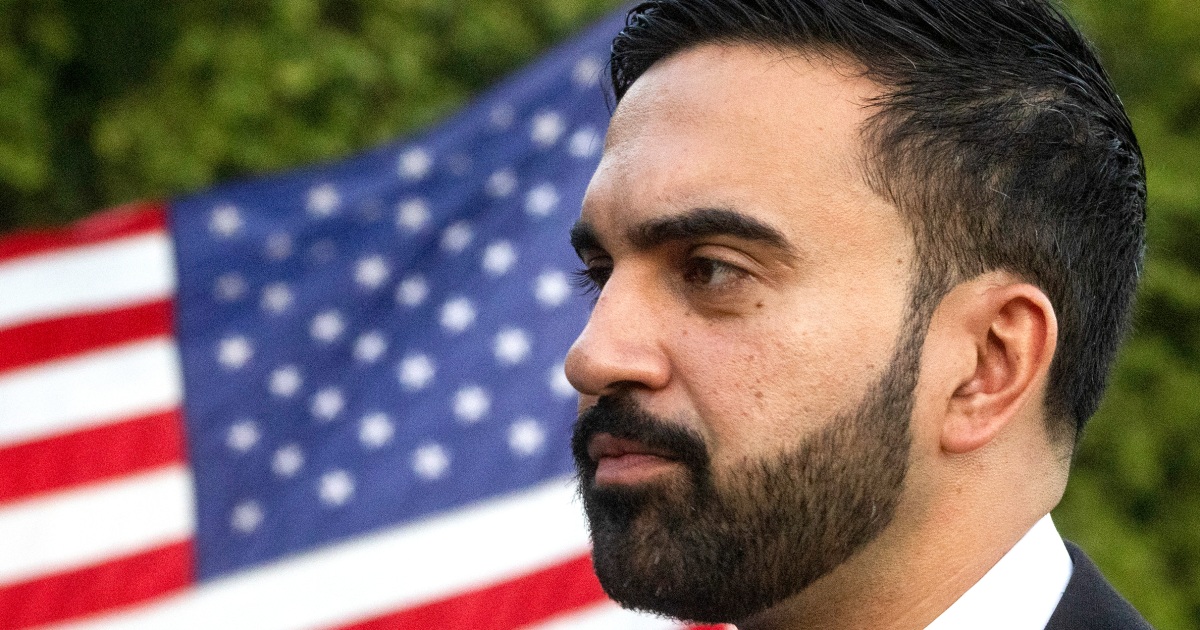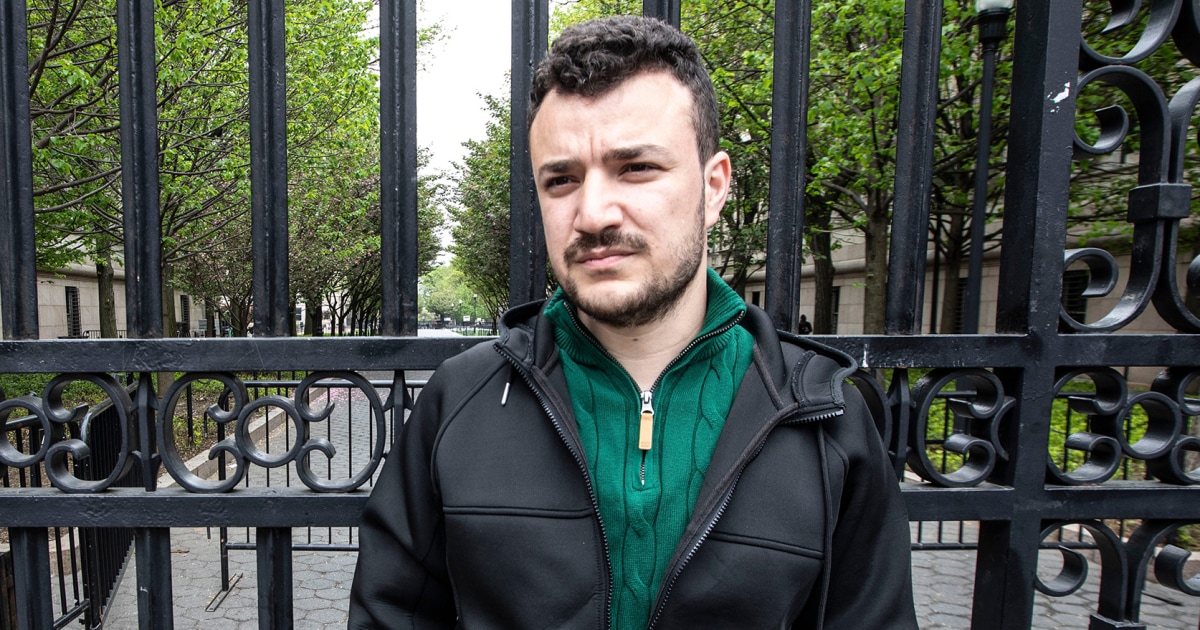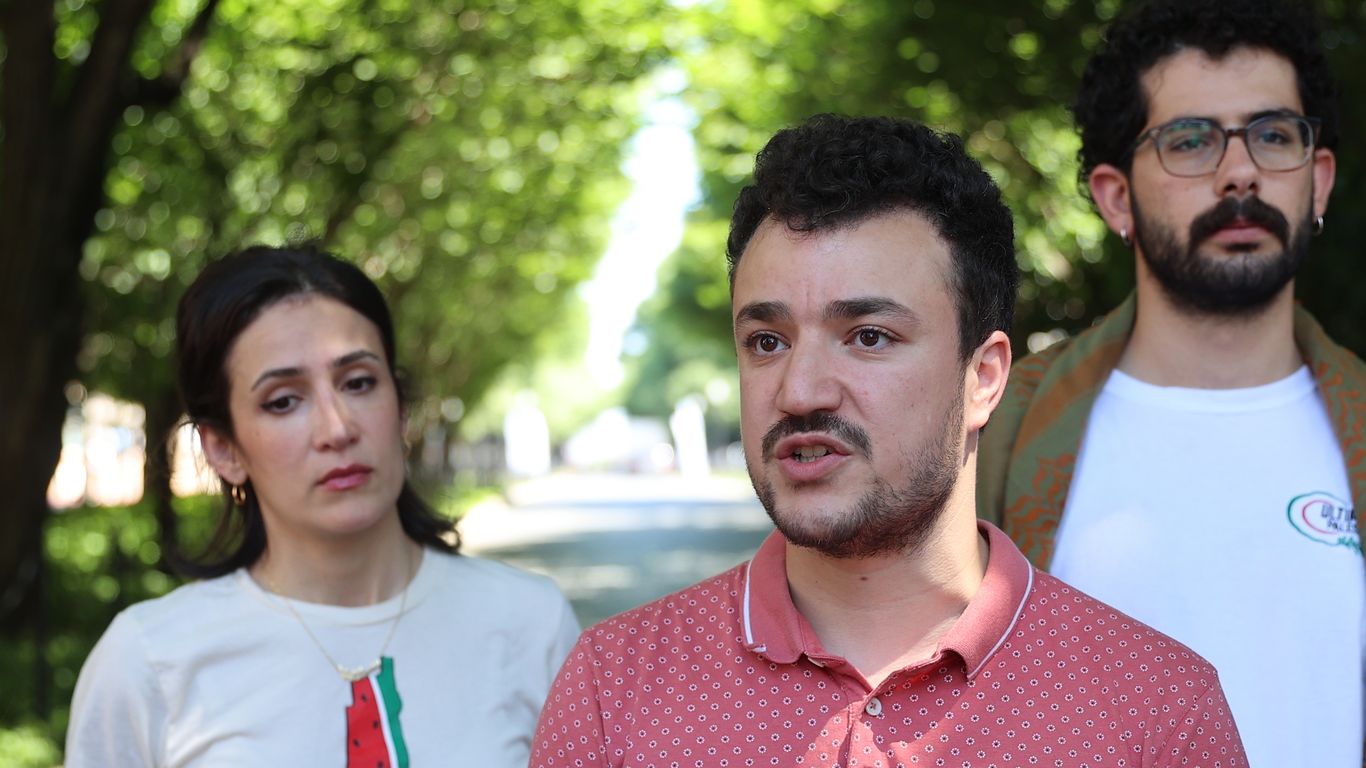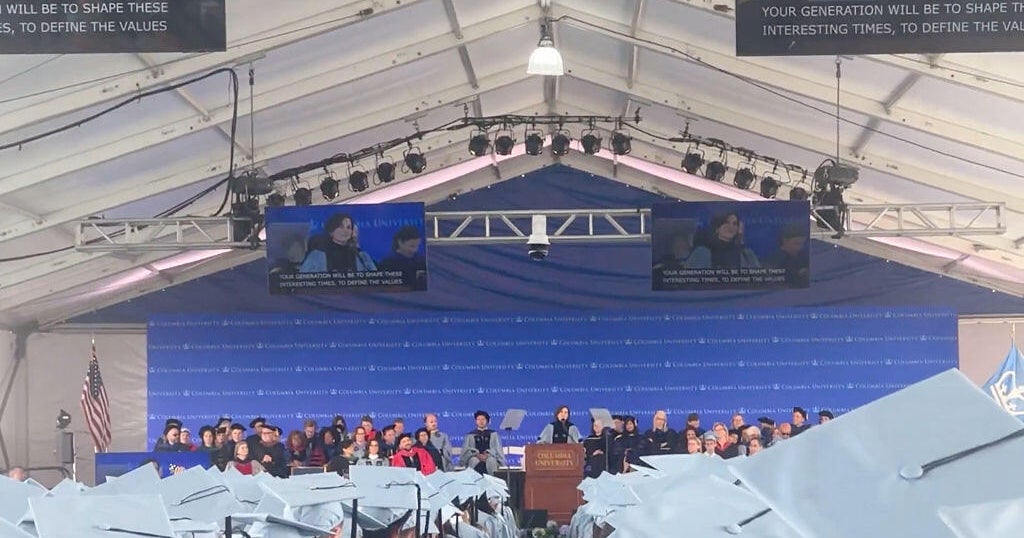The Stanford Daily accused the administration of using immigration provisions to threaten deportation, leading to censorship and violating First Amendment rights.
Stanford University’s student newspaper sued the Trump administration Wednesday over two provisions in federal immigration law that it says the officials have wielded against those with pro-Palestinian views.
The Stanford Daily, in addition to two former college students, filed the lawsuit against Secretary of State Marco Rubio and Homeland Security Secretary Kristi Noem, accusing the administration of using the provisions to threaten deportation and the revocation of visas. They say the situation has led to censorship and violations of free speech rights.
The paper’s staff members who are on visas have self-censored and declined assignments related to the war in Gaza, fearful that their reporting could jeopardize their lawful immigration status, the lawsuit said.
“In the United States of America, no one should fear a midnight knock on the door for voicing the wrong opinion,” Conor Fitzpatrick, an attorney at the Foundation for Individual Rights and Expression, which is helping represent the plaintiffs, said in a statement. “Free speech isn’t a privilege the government hands out. Under our Constitution it is the inalienable right of every man, woman, and child.”
A senior State Department official declined to comment and directed NBC News to comments Rubio has about visa holders and complying with U.S. law.
In April, Rubio wrote in an opinion piece published on Fox News that he would be taking a “zero-tolerance approach to foreign nationals who abet terrorist organizations.”
“The Supreme Court has made clear for decades that visa holders or other aliens cannot use the First Amendment to shield otherwise impermissible actions taken to support designated foreign terrorist organizations like Hamas, Hizballah, or the Houthis, or violate other U.S. laws,” Rubio said.
Tricia McLaughlin, spokesperson for the Department of Homeland Security, described the lawsuit as “baseless.”
“There is no room in the United States for the rest of the world’s terrorist sympathizers, and we are under no obligation to admit them or let them stay here,” she said in a statement.
In the lawsuit, the plaintiffs take aim at the Deportation Provision and Revocation Provision in the Immigration and Nationality Act. The first provision allows the secretary of state to deport noncitizens if the secretary “personally determines that the alien’s admission would compromise a compelling United States foreign policy interest.” The second gives the secretary the power to revoke a visa or documentation at his or her discretion.
As the lawsuit points out, the Trump administration has cited the Deportation Provision as the basis for trying to deport Columbia University activist Mahmoud Khalil, who was arrested and detained for more than three months. Similarly, the administration used the Revocation Provision to detain Tufts University student Rümeysa Öztürk, who has also since been released.
Because of the administration’s use of the statutes, the lawsuit said, the Stanford Daily has received a number of requests from lawfully present noncitizens to have their names, quotes or photos removed from articles. Many international students have stopped speaking to the paper’s journalists, and current and former writers have asked for their opinion editorials to be taken down, the lawsuit said.
“The First Amendment cements America’s promise that the government may not subject a speaker to disfavored treatment because those in power do not like his or her message,” the lawsuit said. “And when a federal statute collides with First Amendment rights, the Constitution prevails.”
One of the unnamed plaintiffs appeared on the Canary Mission, the suit said. The website, run by an anonymous group, has published a detailed database of students, professors and others who it says have shared anti-Israel and antisemitic viewpoints. It has been accused of doxxing and harassment, in addition to launching personal attacks that depict pro-Palestinian activists as being in “support of terrorism,” the Middle East Studies Association of North America said. The plaintiff has stopped publishing and “voicing her true opinions” on the Palestinian territories and Israel, the suit said.
Canary Mission has told NBC News that it documents people and groups who “promote hatred of the USA, Israel and Jews” across the political spectrum. It did not respond to criticisms of its work.
The plaintiffs are asking the court to issue preliminary and permanent injunctions that block the officials from using the provisions against them based on engaging in what they consider protected speech.
“There’s real fear on campus and it reaches into the newsroom,” Greta Reich, the Stanford Daily’s editor-in-chief, said in a statement. “The Daily is losing the voices of a significant portion of our student population.”









